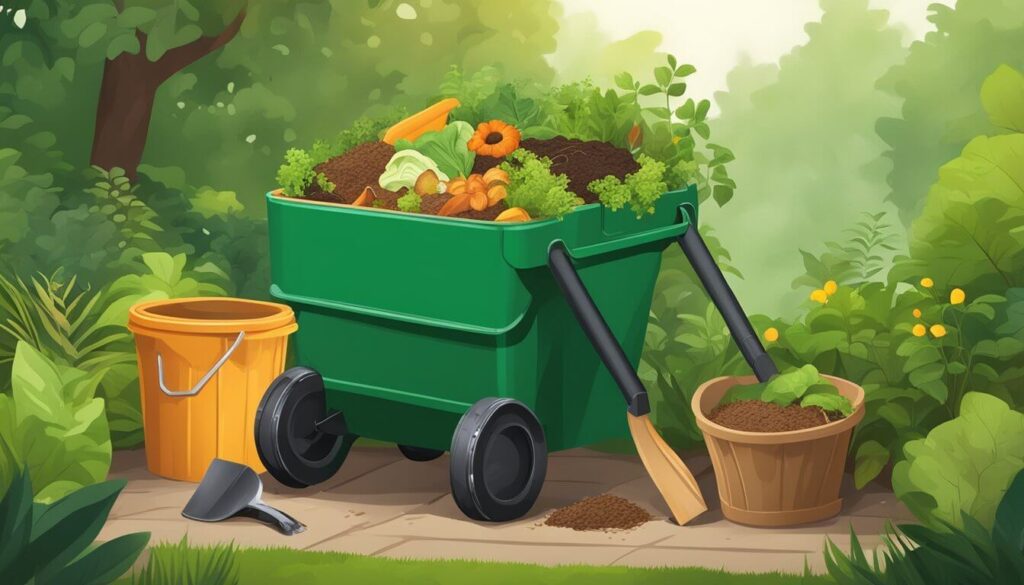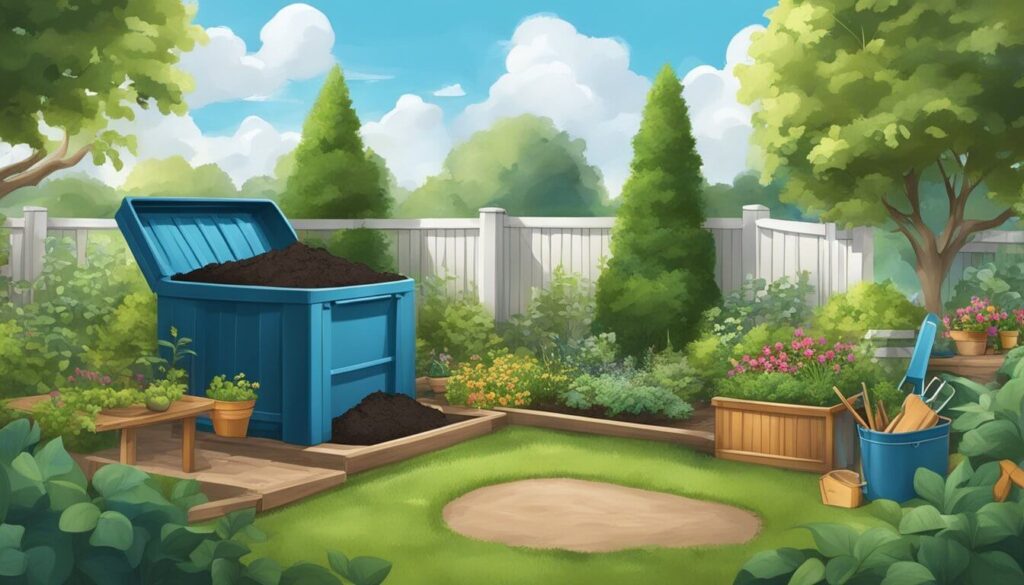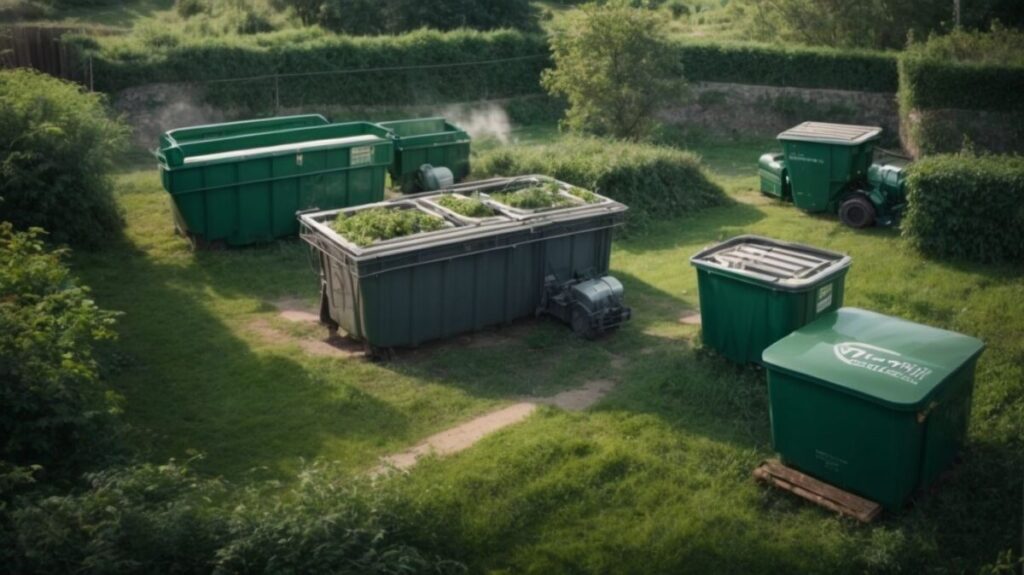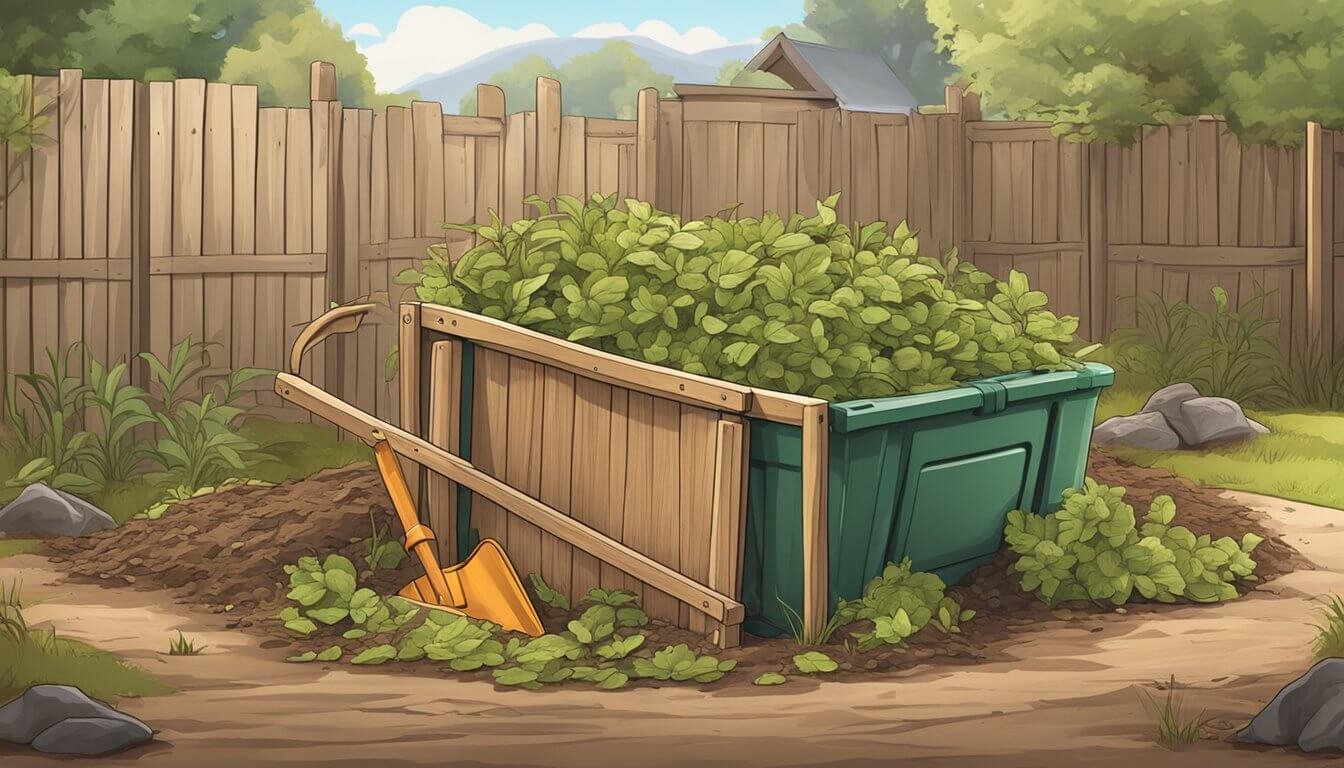Maintaining a garden involves various tasks, one of which is managing green waste effectively. Selecting the right green waste removal service is crucial to keeping your outdoor space healthy and aesthetically pleasing. This article will guide you through understanding the importance of green waste removal, identifying your garden’s needs, evaluating available services, and making the final decision. Additionally, we’ll discuss ways to maintain your garden after waste removal.
Understanding the Importance of Green Waste Removal
Green waste, comprising leaves, grass clippings, branches, and other organic materials, can accumulate quickly in any garden. If left unmanaged, it can lead to various issues, including pests, diseases, and an unkempt appearance. Therefore, the importance of green waste removal cannot be overstated.
The Environmental Impact of Green Waste
Green waste has a significant environmental impact when it decomposes improperly. As it breaks down, methane—a potent greenhouse gas—is released into the atmosphere, contributing to climate change. Furthermore, when disposed of in landfills, green waste takes up valuable space that could be used for other materials. By engaging in responsible green waste removal, you can play a part in reducing your carbon footprint.
Moreover, the benefits of composting green waste extend beyond just reducing landfill use. When composted correctly, organic materials transform into nutrient-rich soil that can enhance the health of your garden. This natural fertiliser not only improves soil structure but also promotes biodiversity by supporting beneficial microorganisms. By returning nutrients to the earth, you contribute to a more sustainable ecosystem, fostering a thriving environment for plants and wildlife alike.

The Benefits of Professional Waste Removal Services
Utilising professional waste removal services offers numerous benefits. Firstly, these services ensure that your green waste is handled responsibly—composted or recycled—rather than simply discarded. Secondly, professionals have the necessary expertise and equipment to manage large volumes of waste efficiently and safely. Additionally, hiring a service saves you time and effort, allowing you to focus on what you love most about your garden.
In addition to convenience, professional services often provide tailored solutions to meet specific needs. For instance, they can advise on the best practices for managing different types of green waste, from seasonal leaf fall to the remnants of larger landscaping projects. This bespoke approach not only optimises the waste removal process but also helps you implement more sustainable gardening practices. By working with experts, you can gain insights into how to minimise waste generation in the first place, leading to a more eco-friendly gardening experience overall.
Identifying Your Garden’s Specific Needs
Understanding your garden’s specific needs is fundamental when choosing a green waste removal service. Your garden’s size, type, and the frequency of waste accumulation will dictate the best service for you. Taking the time to assess these factors ensures a more tailored approach to waste management.
Assessing the Size and Type of Your Garden
The size of your garden plays a crucial role in determining your green waste removal needs. A larger garden will naturally produce more green waste, requiring services that can handle bigger volumes. Additionally, the type of garden—whether it’s a flower garden, vegetable patch, or mixed space—affects the kind of waste generated. Understanding these elements will help you choose a provider capable of managing your particular waste efficiently. For instance, a vegetable garden may produce a significant amount of organic matter, such as leaves and stems, especially during harvest time, while a flower garden might generate more deadheading waste. Knowing the specifics of what your garden produces can aid in selecting a service that not only collects but also composts or recycles the waste appropriately, contributing to a more sustainable gardening practice.

Determining the Frequency of Waste Removal Required
The frequency with which you need waste removed is another critical aspect to consider. If your garden is densely planted or features fast-growing plants, you may require more regular services. Conversely, a less demanding garden may need only seasonal removal. Evaluating your waste generation patterns will help you select a service that aligns with your needs, ensuring you aren’t overpaying or leaving waste to accumulate. Furthermore, consider seasonal variations; for example, spring and autumn often bring a surge in waste due to pruning and leaf fall, respectively. Some services offer flexible scheduling options that can adapt to these fluctuations, allowing you to maintain a tidy and healthy garden year-round. By recognising these patterns, you can ensure that your chosen service not only meets your current needs but can also adapt as your garden evolves over time.
Evaluating Different Green Waste Removal Services
Once you have a clear understanding of your requirements, the next step is to evaluate the green waste removal services available to you. This includes comparing costs, checking reliability, and assessing the reputation of the service. Such evaluations can lead you to the best option that meets both your needs and your budget.
Comparing Costs and Value for Money
Start by acquiring quotes from a range of green waste removal services. While it might be tempting to choose the cheapest option, it’s vital to consider the value offered. Look beyond just the price; evaluate what is included in the service, such as collection frequency, types of waste accepted, and whether additional services— like composting— are provided. This will give you a clearer picture of the overall value for money. Additionally, some services may offer discounts for regular customers or bulk collections, which can significantly reduce costs over time. It’s also worth considering the environmental impact of the service; companies that prioritise eco-friendly practices may charge a little more, but the benefits to the planet can far outweigh the extra expense.
Checking the Reliability and Reputation of the Service
Reliability and reputation are key factors in selecting a green waste removal service. Look for reviews and testimonials from previous customers to gauge their experiences. You can also check online platforms and local community groups for recommendations. A reputable service will have a track record of punctuality and professional conduct, which are essential for maintaining your garden’s upkeep. Furthermore, consider reaching out directly to the service providers to ask about their policies on missed collections or delays, as this can provide insight into their customer service approach. Engaging with a service that values communication and transparency can make a significant difference in your overall experience, ensuring that your green waste is managed efficiently and effectively.

Making the Final Decision
After evaluating different services, it is time to make the final decision. This step should involve weighing all the factors discussed—including costs, reliability, and your garden’s specific needs. Additional considerations may also come into play, such as the service’s sustainability practices.
Considering the Service’s Sustainability Practices
In today’s environmentally conscious world, many consumers prioritise sustainability in their choices. When selecting a green waste removal service, inquire about their practices regarding composting and recycling. A service that prioritises sustainability will manage your green waste in ways that benefit the environment, further reinforcing your commitment to responsible gardening. For instance, some companies may offer to turn your organic waste into nutrient-rich compost, which can then be returned to your garden, enhancing soil health and promoting biodiversity. This not only reduces landfill waste but also creates a closed-loop system that supports the ecosystem.
Assessing the Convenience and Customer Service
Finally, consider the convenience of the service. This includes aspects such as flexible scheduling, ease of communication, and customer service quality. A service that is easy to contact and responsive to your needs is invaluable, particularly if you require adjustments to your agreement or have specific requirements. Good customer service can significantly enhance your experience. Additionally, it is worth checking if the service offers online booking or a mobile app, which can streamline the process and provide you with real-time updates on collection times. The ability to manage your service digitally can save you time and ensure that your gardening needs are met promptly, allowing you to focus on what you love most—nurturing your garden.
Maintaining Your Garden After Waste Removal
Once you have chosen a suitable green waste removal service, it’s essential to maintain your garden effectively. This involves not just relying on external help but also implementing strategies to manage waste independently.
Tips for Reducing Green Waste
Reducing the amount of green waste you generate is an excellent way to simplify your waste management strategy. Some effective tips include:
- Implementing mulching to recycle organic matter back into the soil.
- Regularly pruning plants to keep growth manageable.
- Choosing low-maintenance plants that require less upkeep.
By being mindful of these strategies, you can significantly reduce the volume of green waste produced by your garden. Additionally, consider planning your garden layout carefully; grouping plants with similar watering and sunlight needs can minimise waste and maximise efficiency. Moreover, seasonal planting can also play a crucial role in reducing waste, as it allows you to rotate crops and utilise the space more effectively, ensuring that your garden remains vibrant and productive throughout the year.
The Role of Composting in Waste Management
Composting is an excellent method for managing green waste sustainably. By creating a compost pile or bin, you can turn your organic waste into nutrient-rich soil amendment suitable for your garden. This not only lessens the amount of waste sent for disposal but also enhances the health of your garden’s soil. Whether you choose a simple compost bin or a more elaborate system, the benefits of composting are immeasurable. Furthermore, composting can also attract beneficial microorganisms and insects that contribute to a thriving ecosystem in your garden, promoting biodiversity and resilience against pests.
In addition to traditional composting, you might also explore vermicomposting, which utilises worms to break down organic matter more efficiently. This method can produce a high-quality compost known as worm castings, which is particularly rich in nutrients and beneficial for plant growth. By engaging in these practices, you not only contribute to a more sustainable environment but also create a flourishing habitat for various forms of wildlife, enhancing the overall appeal and functionality of your outdoor space.
More to read: Everything You Need to Know About Stump Grinding and Its Benefits
